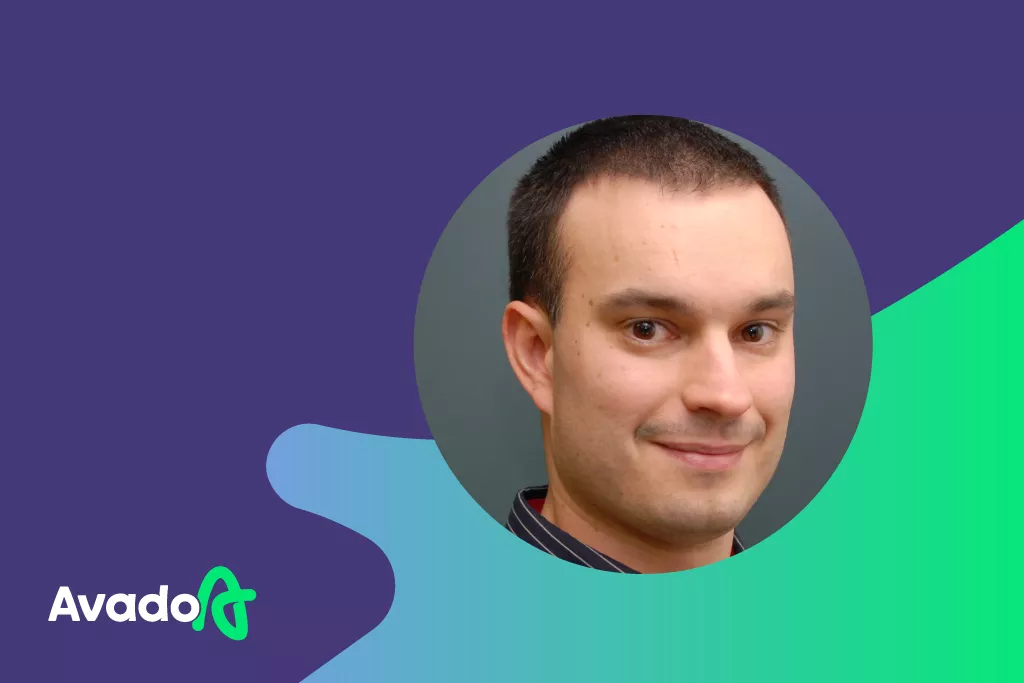Data. It’s one of those words we hear all the time, from people wanting to misuse it to its capacity to improve how we engage with and understand the world.
Here at Avado, we believe everyone working in business should feel comfortable with information and data. After all, it is weaved into almost everything we do. For People teams, it’s no different, albeit often more personal and sensitive.
This is why we teamed up with Dr. David Tarrant of the Open Data Institute (ODI) to better understand the varied ways data fits into the people function. We discussed diversity and inclusion, AI and data collection, and the future of people data. As well, we focused on understanding the purpose of data collection and why its use should be important to you.
The ODI “want a world where data works for everyone,” and Avado is right there with them. Read on for David’s insights.
Getting the most out of people data
People teams are becoming more and more interested in capturing data to enhance the work place, and improve wellbeing and organisational culture. Collecting sensitive information about things like mental health and diversity can make people apprehensive about contributing to that data, particularly when people don’t know how and what it might be used for in the future.
 To mitigate that apprehension and collect the most useful data, transparency is key. “You’ve got to be very clear on what the objectives of the data collection are and the boundaries,” says David.
To mitigate that apprehension and collect the most useful data, transparency is key. “You’ve got to be very clear on what the objectives of the data collection are and the boundaries,” says David.
If you’re trying to accurately communicate about your culture or the diversity of your workforce, you’ve got to establish what data is needed, what its purpose is, and then stick to that intended use. A People team needs to build trust to enable their colleagues to feel confident in the outputs and, in turn, be more willing to share personal data.
“It might be coming from the board of directors that we need to use this data to do this and this system to do this,” says David. “But saying no, because it was never collected for that purpose and we don’t have permission to use it in that way, that’s where HR needs to take a stand.” Staying focused on the interest of the people that data is connected to and who it’s ultimately for is core to a great people team.
Data literacy across the entire organisation
Data isn’t just for “data” people. Having a working knowledge of data is increasingly important to everyone throughout an organisation, no matter their function. This is especially true for People teams who find data storytelling challenging. They also might find it difficult to access the information needed to make those important data-led decisions.
“Data literacy is defined as the ability to think critically about how data is collected, used and shared across different contexts,” explains David. “So HR absolutely has a key role to play because they know more about the organisation than most other people.”
A People team knows how diverse an organisation is or isn’t, and what needs to be done to address that and build an organisation with a rich culture. But just knowing these kinds of things isn’t enough. People teams need to be confident to use the data at their disposal to support the knowledge they have.
David compares it to the ability to functionally use a programme like Excel, versus the ability to extract useful insights from a dataset. “If you teach someone to use every button in Excel, does that mean they’re any better at using data? Everyone needs a certain set of knowledge and skills to create or consume what is created,” he says. “Data literacy is about thinking critically about data in different contexts. We need people who are literate enough to be able to consume the data and the numbers that get put to us every single day.”
Maintaining the “human” element in data gathering
When working with the kind of data People teams do, it’s so important to keep the people behind that data central to the thinking and decisions.
“When you’re handling sensitive information about different disability and accessibility requirements of people within the organisation or their mental health, that needs careful governance and careful treatment,” David explains. This becomes a challenge during recruitment processes, too.
If someone has a stack of CVs, it can be challenging to filter through them to find the right person. Data science and, more specifically, machine learning can help, but being data literate and understanding people is imperative. There are many famous examples where good intentions go wrong and introduce bias. David explains one.
“A very famous tech company built a model to help them filter candidates based on existing employment profiles, and it ended up being biased towards men because they had a workforce full of men,” says David. “The algorithm immediately ruled out any CVs of women even though gender was removed because it learnt terms that were more typically associated with women.”
“If it’s just about filtering down 800 CVs to four, anyone can do that just by dropping 796 of them on the floor,” David says. “But what do we want to achieve? You need literate people, from multiple backgrounds and roles to help ensure any systems built minimise bias.”
Clearly, combining human knowledge with tech is essential when it comes to enhancing People team’s processes. Everyone in the team should be confident enough with basic data comprehension and knowledge about people characteristics. Then, they can ask the right questions of the data. When this happens, transparent and effective decisions can be made. Conveniently, the ODI has a tool that is meant for identifying and managing the ethical issues associated with collecting data, as well.
The future of data in the people function
Although the world of data analytics is growing and evolving at a rapid pace, people analytics is still relatively new and there’s an excited and opportunistic pressure to keep up. To keep adopting things like automation and predictive analytics while still being tied to outdated, legacy processes and systems.
David sees a way to slow it down a bit and focus on what can be improved now. “If we were 10% better at data management within an organisation, it would go a long way,” he says. “A lot of organisations have a vision of where they want to be in 20 years’ time, and to get there, it’s going to take a lot of effort. But there’s a lot to be gained from this 10% better at data and might provide 90% of that benefit.”
The ODI, work with maturity models and assessments that help them, and others strive for the best possible outcome. But even moving just slightly along a maturity model, boosting data literacy across the organisation, could make a big difference.
David points out that this data literacy can extend into people’s lives outside of work. “I think organisations need to see that a part of mental health is what happens outside the organisation,” he says. “That’s where increasing data literacy across the team, not just about the organisation’s data but data in general, will help people cope in a world where data is everywhere.”
Thank you to David and the ODI from us here at Avado. It has been a pleasure to gather your insight around the human aspects of data literacy both for those working in People teams and the people’s data they are working with.
Katy Gooblar is the Data Academy Lead here at Avado, and she is a relentless optimist who strives to empower others to see the value in developing their own data literacy. She has 15 years’ experience in the field of data analytics, implementing successful data strategies and effecting lasting behaviour change. Katy is a true motivator of people, helping them discover their own ability to solve business problems through an understanding of data, no matter their role in an organisation.
 7 min read
7 min read 


